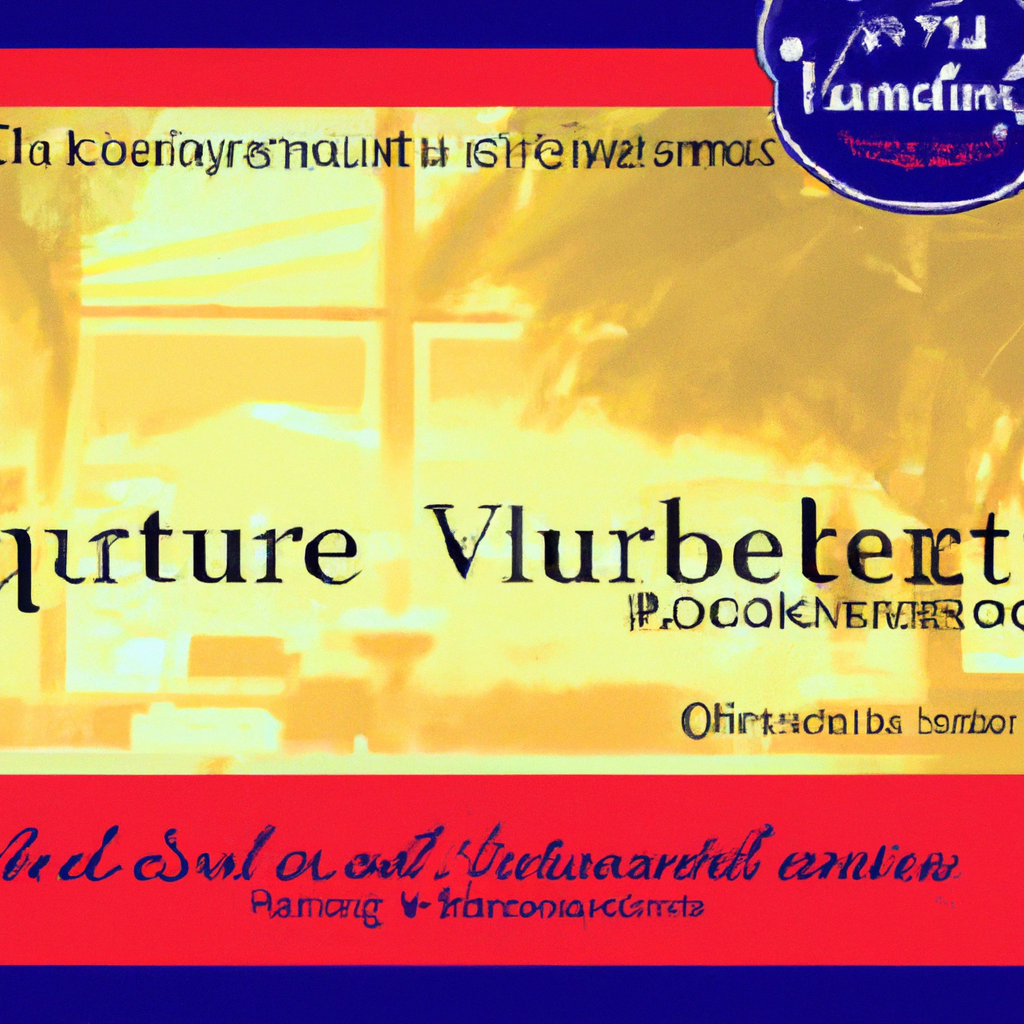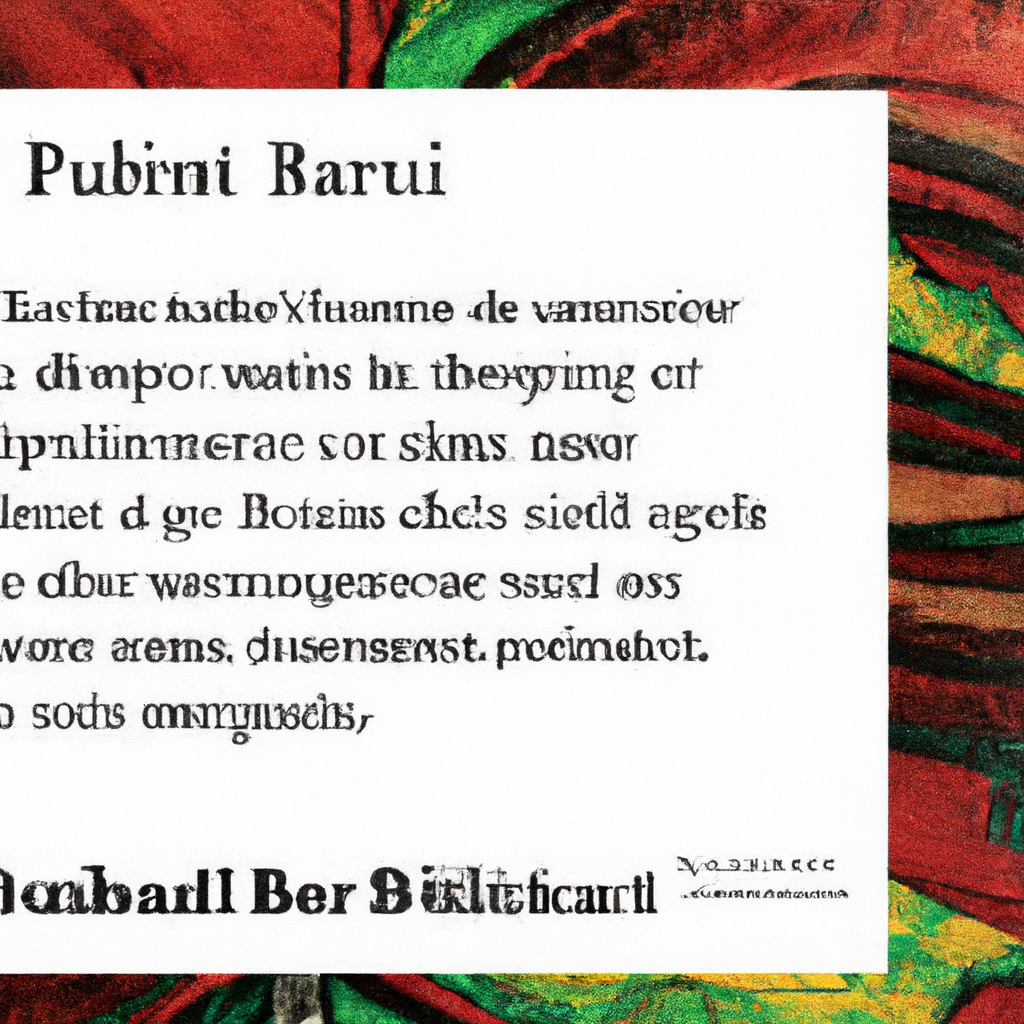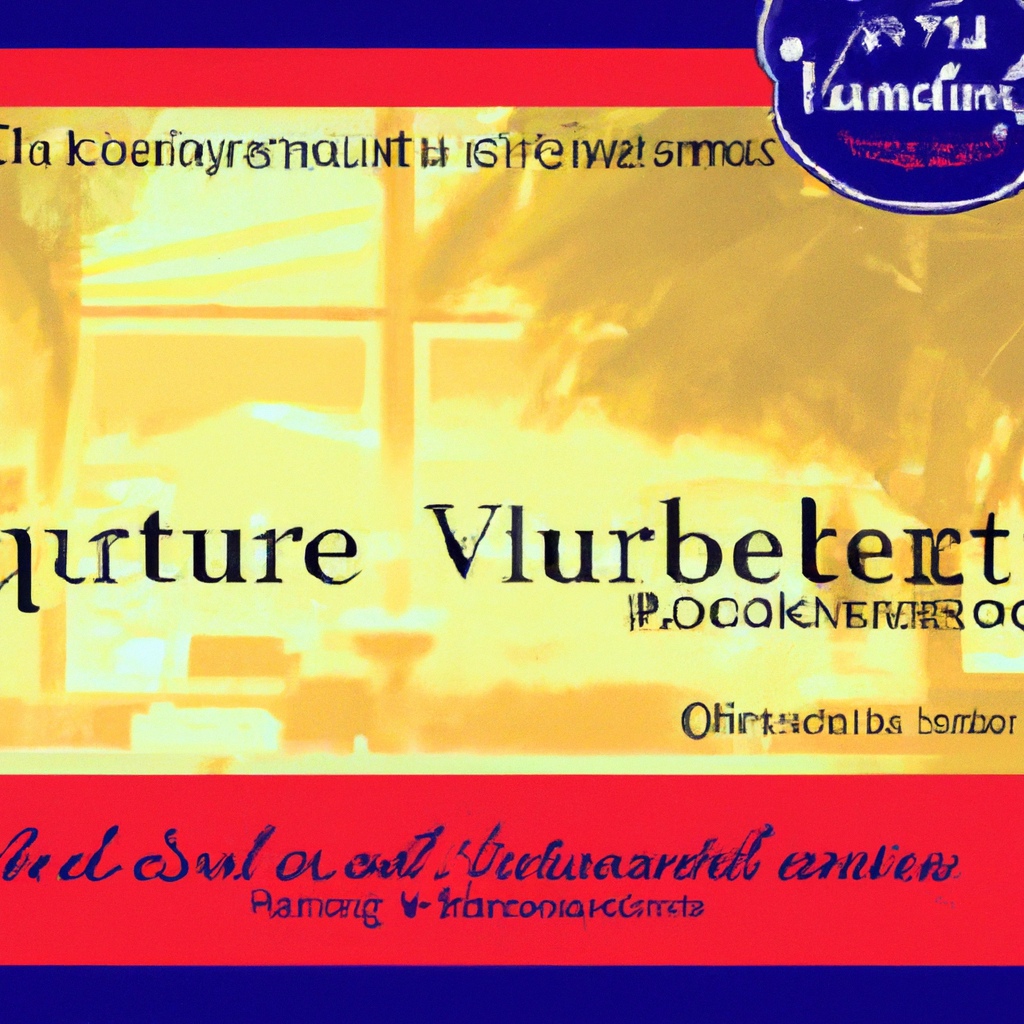Suriname, a hidden gem in South America, is not only known for its diverse wildlife and vibrant cultural heritage but also for the talented writers and poets who have shaped its literary landscape. From the captivating poetry of Trefossa to the thought-provoking novels of Astrid H. Roemer, Suriname has been home to a multitude of influential literary figures. This article will take you on a journey through the lives and works of these gifted individuals, shedding light on their contributions to Surinamese literature and their impact on the world stage. Whether you’re a literary enthusiast or simply appreciate the power of words, prepare to be inspired by the rich literary heritage of Suriname.
The Beginnings of Surinamese Literature
Surinamese literature has its roots in the rich oral traditions and folklore of the indigenous people of Suriname. Before the arrival of European colonization, storytelling was a central part of the Surinamese culture, serving as a means of passing down history, cultural values, and moral lessons from one generation to the next. These oral traditions laid the foundation for the development of Surinamese literature.
Oral Traditions and Folklore
Oral traditions in Suriname encompassed various forms of storytelling, including myths, legends, songs, and proverbs. These narratives often revolved around the natural world, supernatural entities, and the experiences of the Surinamese people. Through the generations, these stories evolved and adapted, reflecting the changing cultural landscape of Suriname.
Folklore, on the other hand, played a significant role in Surinamese literature. Folktales, passed down through generations, provided insights into the values, beliefs, and social norms of the Surinamese society. These tales were not only entertaining but also served as teaching tools, imparting important lessons and wisdom to listeners.

The Impact of European Colonization
With the arrival of European colonizers in the 17th century, Surinamese literature underwent a significant transformation. The Dutch, English, and French influences brought new forms of writing and storytelling to the region. Missionaries, planters, and administrators introduced the written word, leading to the emergence of Surinamese literature in a more formalized manner.
European colonization also introduced new themes and topics to Surinamese literature. Issues such as slavery, colonialism, and cultural identity became central to the literary works of Surinamese writers. The impact of European colonization on Surinamese culture and literature cannot be underestimated, as it shaped the path of literary development for centuries to come.
The Pioneers of Surinamese Literature
Several influential writers and poets have played a crucial role in the development of Surinamese literature. Their works explore various themes, challenge societal norms, and contribute to the growing body of Surinamese literary heritage.
Cynthia Mc Leod
Cynthia Mc Leod is widely recognized as a pioneer in Surinamese literature. Her historical novels, such as “The Cost of Sugar” and “The Free Negress Elisabeth,” delve into the dark chapters of Suriname’s past, including slavery and the plantation era. Mc Leod’s writings provide an important perspective on the historical struggles of Surinamese people and their resilience.
Astrid Roemer
Astrid Roemer, a renowned Surinamese novelist and poet, has made significant contributions to Surinamese literature. Her works explore themes of identity, colonialism, and gender, capturing the complex experiences of Surinamese individuals. Roemer’s novel “The Double Mortal” won the prestigious P.C. Hooft Prize in 2016, cementing her status as one of Suriname’s most respected literary voices.
Clark Accord
Clark Accord, a Surinamese-Dutch author, gained international recognition for his novel “The Queen of Paramaribo.” Based on the true story of Maxi Linder, a famous Surinamese prostitute, Accord’s novel sheds light on the lives of marginalized individuals and challenges societal taboos. Accord’s writing beautifully captures the vibrancy and diversity of Surinamese culture.

The Literary Movements in Suriname
Throughout the history of Surinamese literature, various literary movements have emerged, showcasing the diversity and evolution of the literary scene in Suriname.
The Trefossa Movement
The Trefossa Movement, named after the influential poet Trefossa, brought about a significant shift in Surinamese literature during the mid-20th century. The movement aimed to break away from traditional Dutch literary norms and explore themes rooted in the Surinamese culture and identity. Trefossa’s poetry, written in Sranan Tongo, a creole language spoken in Suriname, played a pivotal role in promoting Surinamese cultural heritage.
The Third Generation Movement
The Third Generation Movement marked a new era in Surinamese literature in the early 21st century. This movement sought to address contemporary issues faced by Surinamese society, including migration, globalization, and multiculturalism. These writers and poets expressed their experiences and perspectives through various literary forms, contributing to the ongoing dialogue about Surinamese identity.
Contemporary Writers and Poets
Suriname’s literary landscape continues to evolve, with an array of talented contemporary writers and poets making their mark on the national and international stage.
Ruth San A Jong
Ruth San A Jong is a prominent Surinamese writer known for her thought-provoking novels and short stories. Her works often explore themes of identity, migration, and cultural heritage, offering a fresh perspective on the complexities of Surinamese society. San A Jong’s literary contributions have received critical acclaim, making her a significant figure in contemporary Surinamese literature.
Rappa
Rappa, an acclaimed poet and performer, has made substantial contributions to Surinamese literature through his powerful spoken word poetry. His poignant verses tackle social issues, ranging from poverty and inequality to political corruption. Rappa’s engaging performances captivate audiences and provide a voice to the marginalized and disenfranchised in Surinamese society.
Michael Slory
Michael Slory, a renowned Surinamese poet, has left an indelible mark on Surinamese literature with his evocative and lyrical poetry. His works delve into personal and collective experiences, capturing emotions and painting vivid pictures of Suriname’s cultural landscape. Slory’s poetic prowess has garnered international recognition, solidifying his place among Suriname’s literary greats.
Literature as a Reflection of Surinamese Identity
Surinamese literature serves as a mirror, reflecting the multifaceted nature of Surinamese identity. Through its exploration of multiculturalism and the role of language, literature highlights the diversity and unity that shape Surinamese society.
Exploring Multiculturalism
Suriname’s rich cultural diversity is reflected in its literature. Surinamese writers and poets often weave narratives that delve into the experiences of various ethnic groups that make up the Surinamese population, including Creoles, Hindustanis, Javanese, and Maroons. The exploration of multiculturalism through literature contributes to a deeper understanding and appreciation of Surinamese society.
The Role of Language
Language plays a significant role in Surinamese literature, capturing the nuances and intricacies of the Surinamese experience. While Dutch is the official language, many writers choose to incorporate Surinamese dialects, such as Sranan Tongo or Sarnami, into their works. This linguistic diversity not only reflects the diversity of Surinamese society but also allows for a more authentic portrayal of Surinamese identity.
The Cultural Significance of Surinamese Literature
Surinamese literature holds immense cultural significance, acting as a means of preserving Surinamese heritage and amplifying Surinamese voices.
Preserving Surinamese Heritage
Through their literary works, Surinamese writers and poets preserve the rich cultural heritage of Suriname. By capturing historical moments, exploring ancestral stories, and documenting the struggles and triumphs of Surinamese people, literature becomes a vessel for preserving and passing down Surinamese traditions, values, and knowledge to future generations.
Empowering Surinamese Voices
Surinamese literature provides a platform for marginalized voices to be heard. It allows individuals to express their experiences, challenges societal norms, and fosters a sense of empowerment among the Surinamese community. By giving voice to the voiceless, literature becomes a catalyst for social change and empowerment.
Challenges and Opportunities for Surinamese Writers and Poets
While Surinamese literature continues to thrive, there are challenges and opportunities that writers and poets in Suriname face.
Limited Accessibility to Publishing
One of the major challenges for Surinamese writers and poets is the limited accessibility to publishing platforms. Suriname’s publishing industry is relatively small, making it difficult for emerging writers to have their works published and reach a wider audience. However, efforts are being made to support local publishing initiatives and create more opportunities for Surinamese literary talent.
The Role of Digital Platforms
Digital platforms provide a new avenue for Surinamese writers and poets to share their work with the world. Websites, blogs, and social media platforms allow for greater visibility and accessibility. These digital platforms have the potential to connect Surinamese writers and poets with a global audience, overcoming the barriers posed by traditional publishing channels.
Recognition and Awards
The contributions of Surinamese writers and poets have not gone unnoticed, both within Suriname and on the international stage.
Surinamese Literary Awards
Suriname has established prestigious literary awards to honor outstanding contributions to Surinamese literature. These awards recognize the talent and dedication of Surinamese writers and poets, providing a platform for their work to be celebrated and acknowledged within the country.
International Recognition
Surinamese writers and poets have also garnered recognition on the international stage. Through translations of their works and participation in literary events and festivals, Surinamese literary talent has gained visibility and appreciation beyond national borders. This international recognition not only elevates the individual artists but also shines a spotlight on Surinamese literature as a whole.
The Future of Surinamese Literature
The future of Surinamese literature is filled with promise, with emerging writers and poets poised to leave their mark on the literary world.
Emerging Writers and Poets
A new generation of talented Surinamese writers and poets is emerging, bringing fresh perspectives and ideas to Surinamese literature. Their works explore contemporary issues, challenge existing narratives, and contribute to a broader understanding of Surinamese identity. With the support of local initiatives and increasing international interest, these emerging voices have the potential to shape the future of Surinamese literature.
Literature Education and Promotions
Investments in literature education and the promotion of reading culture are crucial to the growth and sustainability of Surinamese literature. By fostering a love for reading from a young age, nurturing literary talent, and encouraging critical engagement with literature, Suriname can create a robust literary environment that supports both established and up-and-coming writers and poets.
Conclusion
Surinamese literature has evolved over centuries, drawing inspiration from the oral traditions of the indigenous people and the influences of European colonization. The pioneers of Surinamese literature, such as Cynthia Mc Leod, Astrid Roemer, and Clark Accord, have laid the foundation for generations of writers and poets to come. Surinamese literature reflects the complex cultural identity of the nation, explores themes of multiculturalism and language, and preserves Surinamese heritage. Despite challenges, Surinamese writers and poets continue to make their mark, empowered by digital platforms and the recognition they receive both nationally and internationally. With the emergence of new literary talent and increased support for literature education, the future of Surinamese literature is bright, promising continued growth and success for generations to come.
